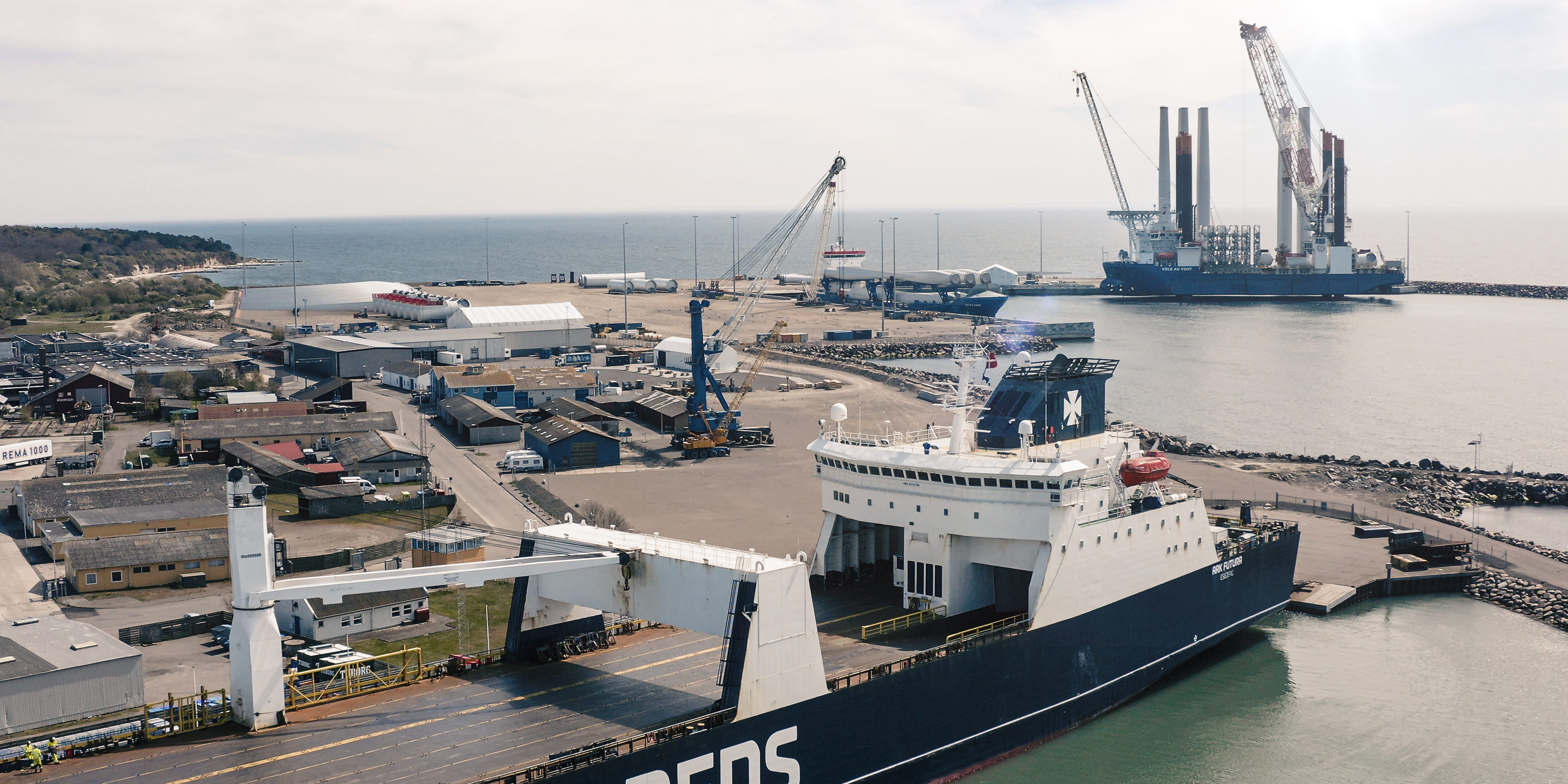
DeCoInter Project – Driving Green Energy Transition in the Maritime Sector
The Port of Roenne is a partner in the DeCoInter project (Decarbonization of Maritime Sector and Its Impact on Green Energy Transformation), a 36-month initiative co-financed by the European Regional Development Fund. With a total budget of €2.2 million, of which €257,580 is allocated to Port of Roenne, the project unites ports, academia, regional authorities, and industry to accelerate the South Baltic region’s energy transition in line with the European Green Deal. Activities span across Poland, Lithuania, Sweden, Denmark, and Germany, emphasizing cross-border cooperation to foster innovation and sustainable development.
The project will benefit to a wide range of stakeholders, including port authorities and operators, municipalities, logistics companies, energy sector actors, academia, students, and regional policymakers. It is funded under the Interreg South Baltic Programme 2021–2027, within the priority Sustainable South Baltic – promoting sustainable development and the green and blue economy and specifically supports the transition towards green energy.
Project Leader:
The Association of Polish Regions of the Baltic Adriatic Transport Corridor (Lead Partner). www.bac.pl
Project Partners:
Objectives
Expected Results
Key Benefits for the Port of Roenne:
1. Scenario Planning for Alternative Fuels: The project will assist in developing a comprehensive Scenario Model for the adoption and value chain of green fuels, including hydrogen and ammonia, at the port.
2. Infrastructure for Alternative Fuels: Plans for storage and distribution of alternative fuels, along with the creation of procedures for bunkering these fuels, will be established, preparing the port for future demands in green fuel logistics.
3. Electrification: Development of charging infrastructure for transport, including heavy transport and maritime traffic will further support sustainable transportation within and beyond the port.
4. Knowledge Sharing and Capacity Building:
- Training and Education: The project will offer training programs for port stakeholders and students, enhancing local expertise in renewable energy technologies and green fuel management.
- Cross-Border Cooperation: Collaboration with other ports and stakeholders across the Southern Baltic region will facilitate knowledge exchange and the adoption of best practices in energy transition.
5. Promotion and Awareness:
- Community and Stakeholder Engagement: Increased awareness and promotional campaigns about the benefits and opportunities of the energy transition will be targeted at the port community and broader regional stakeholders.
- Networking Opportunities: The project will create platforms for networking and learning, connecting the Port of Roenne with other innovators, leaders and potential competitors in all the areas related to green energy and all the activity areas within the port (offshore, cruise, bulk).
Port of Roenne Specific Activities
The DeCoInter project
The project represents a key opportunity for the Port of Roenne, collaborating with important players in the region as well that supporting financially many of green energy/transition investigations that are already taking place in the port specially in relation with electrification and green fuel. It will allow us to take advance of financial and knowledge resources, as well as to understand how other ports are facing the new changes.
Finally, the networking opportunities and cross border cooperation with allow us to measure the position of other ports as partners but also to identify challenges that these ports might pose in other areas as offshore, cruise and bulk.

Bornholm Bunker Hub
Bornholm Bunker Hub is the name of a new consortium where several international players are testing the feasibility of establishing a green marine fuel station on Bornholm. The consortium includes several Danish companies, including Ørsted, Molslinjen, Haldor Topsøe, and Bunker Holding.
---
REACTRF-22-0054 - Feasibility Study for Power-to-X on Bornholm
In June 2022, Port of Roenne launched REACTRF-22-0054 - Feasibility Study for Power-to-X on Bornholm, a project funded by the European Regional Development Fund and the Danish Board of Business Development.
The purpose of the study is to establish the analytical foundation for the future large-scale production of Power-to-X products on Bornholm by investigating the possibility of establishing such production.
The project is carried out in partnership with Ørsted Hydrogen Holding, Skovgaard Energy, Topsoe, Danfoss Power Electronics, Rambøll, Bornholm's Energy & Supply, Bornholm Municipality, DTU Management, DTU Wind and Energy Systems, and Gate 21. The study is divided into six main work packages (WPs) that will analyze potential sources, technologies, products, and off-takers, as well as the integration of Power-to-X into energy systems.
The results of the study can be read here:
Rapport om feasibility study for Power-to-X production on Bornholm